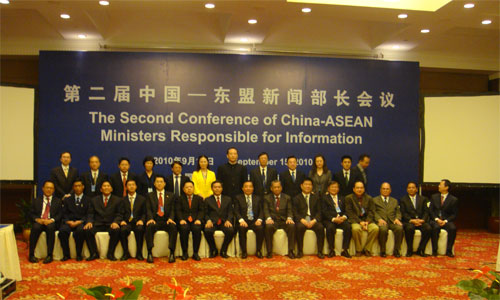China and ASEAN gear up to strengthen media
China and ASEAN countries should step up media cooperation to enhance the soft power of the region, Wang Chen, minister of the State Council Information Office, said on September 15.
Wang made the remark in a keynote speech to the Second Conference of China-ASEAN Information Ministers in Beijing.
"Cooperation among Asian countries is continually misrepresented by the Western media, which shape world public opinion," Wang said. "Asian countries should work together to increase their news coverage of each other, report on the cooperation between China and ASEAN, and build up competitive media organizations to enhance the communication capabilities and soft power of the region – a region that has always been a voice for peace and prosperity in the world."

According to research by the Center of International Communications of China International Publishing Group (CIPG), globally more than 1,000 stories covered the launch of the China-ASEAN Free Trade Zone, of which more than 300 originated in ASEAN countries and 108 in China. But media from the six major Western powers – the U.S., Britain, Canada, France, Australia and Japan – carried only 133 stories in total. By contrast, when the Hong Kong hostages were killed in the Philippines, the Western media published more than 300 stories, accounting for over half of global coverage.
"It is us, the people in the region, who are most concerned with regional development. And our own media should be more active in helping to create public opinion favorable to cooperation," said Huang Youyi, deputy director of CIPG.
Initiated in 2008, the conference agreed a Memorandum of Understanding on the Cooperation of Media between ASEAN Nations and China. According to the Memo, China and the ASEAN Countries will cooperate to enhance communication and information-sharing.
It is important to see cooperation from the perspective of the cultural links between ASEAN and China, a country with 5000 years of cultural history, said Sim Gim Guan, deputy secretary of Singapore’s Ministry of Information, Communications and the Arts (MICA).
But cooperation requires better understanding and communication, including exchange of journalists, joint investments in print and multi-media publications, and building joint facilities and training centers.
 0
0 







Go to Forum >>0 Comments